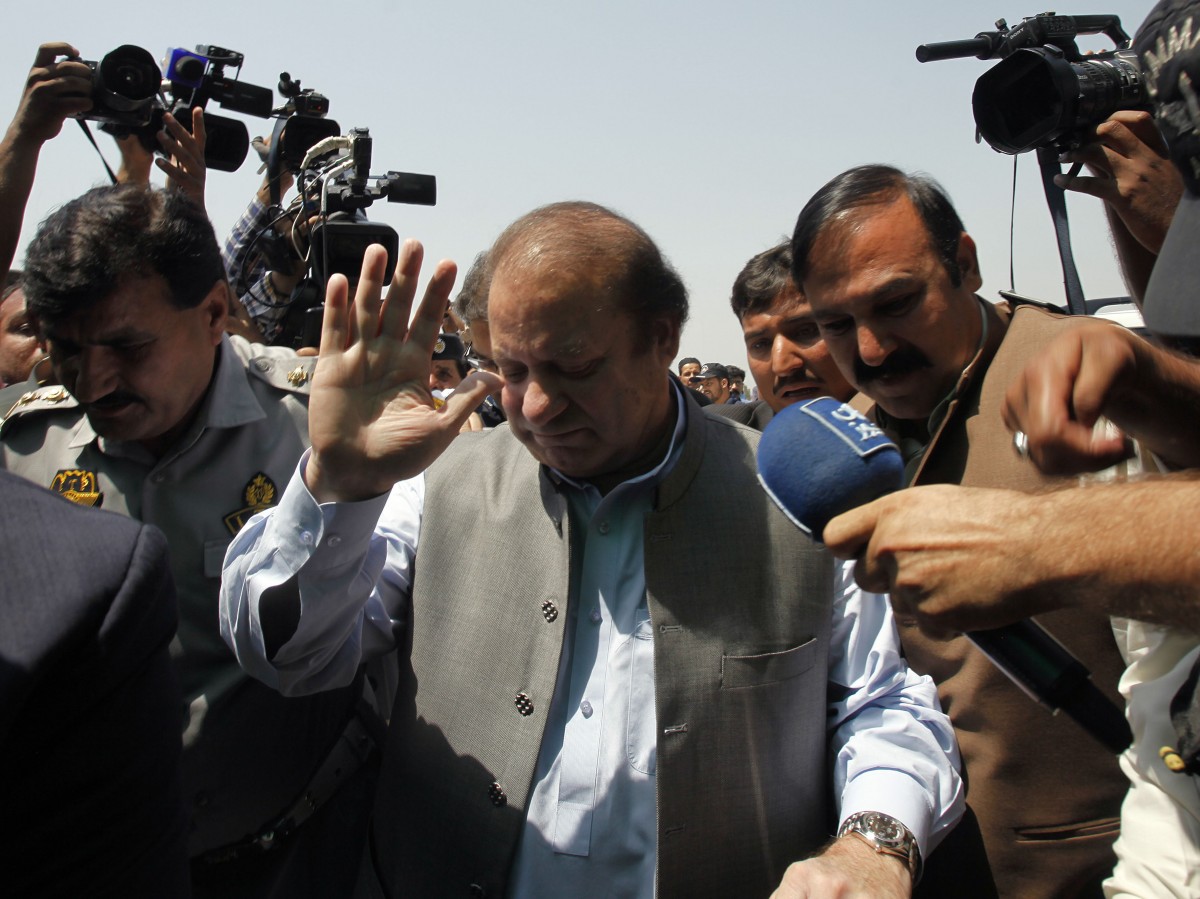
Pakistan’s new head of government took office just last week, but he wasted little time before challenging the United States’ policy of targeting suspected terrorists in the country.
“This daily routine of drone attacks, this chapter shall now be closed,” said newly elected Pakistani Prime Minister Nawaz Sharif before Parliament. “We do respect others’ sovereignty. It is mandatory on others that they respect our sovereignty.”
Sharif’s promise could bring an end to nearly a decade of U.S. drone strikes in Pakistan that have killed up to 884 civilians, according to estimates by the London-based Bureau of Investigative Journalism.
Drone strikes in Pakistan began in 2004 under the Bush administration, which used it as a tactic to target terrorists. The program was expanded considerably under President Barack Obama, who has overseen 318 of the 370 strikes in Pakistan. Several high-level terrorist leaders have been killed, but the program has come under intense public criticism in recent years as civilian death tolls increased steadily.
Wali Ur Rehman, a top leader of the Taliban in Pakistan, was killed along with five other civilians in a U.S. drone strike last month. Since 2010, he was a specially designated global terrorist and had a $5 million bounty on his head.
Sharif’s challenge to the U.S. follows the victory of the Pakistan Muslim League-N, which he leads, in general elections last month. The league captured a majority of seats, allowing Sharif to assume the office of prime minister on June 5.
If successful, Sharif’s vow to end drone strikes would be a welcome change for families in Waziristan and the Federally Administered Tribal Area, the regions hit hardest by U.S. attacks.
Russia Today reports that Amin Ullah was on his way to work at a mine near his village when a drone struck the area. He lost his leg in the attack, and three other miners were killed.
“The Americans should be able to tell an ordinary person from a Taliban leader. They should know who they’re killing. What did we do to deserve this?” Ullah told the publication. “We are simple villagers who are stuck in a war that we didn’t ask for. It’s a hopeless feeling. Death is above our heads all the time.”
Pakistanis have found it difficult to end drone strikes despite overwhelming public opposition to the tactic. Jason Ditz of Anti-war.com reports that the previous government, led by the Pakistan Peoples Party, had criticized the strikes, but U.S. leaders contended that they had permission to continue them.
Drone operations were briefly disrupted after a U.S. strike November 2011 accidentally killed 24 Pakistani soldiers mistaken for Taliban militants.
In response to the attack, the Pakistani government ordered the CIA to vacate Shamsi Air Base, where it ran drone operations. The government also closed two main NATO supply routes into Afghanistan, accounting for 40 percent of supplies that go to coalition forces.
It wasn’t the first time that a mistake of this kind has happened. In a June 2008 attack, U.S. forces killed 11 Pakistani paramilitary troops after mistakenly identifying them as Taliban fighters.


